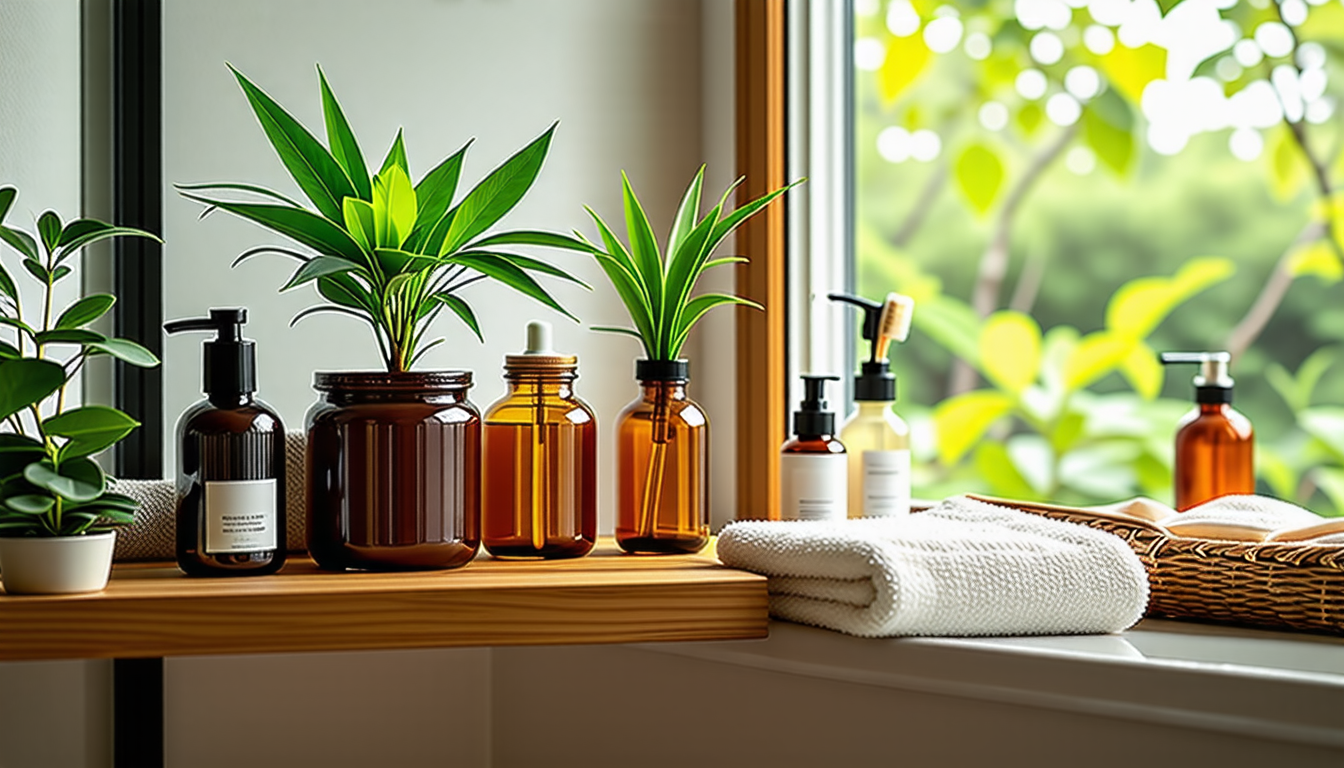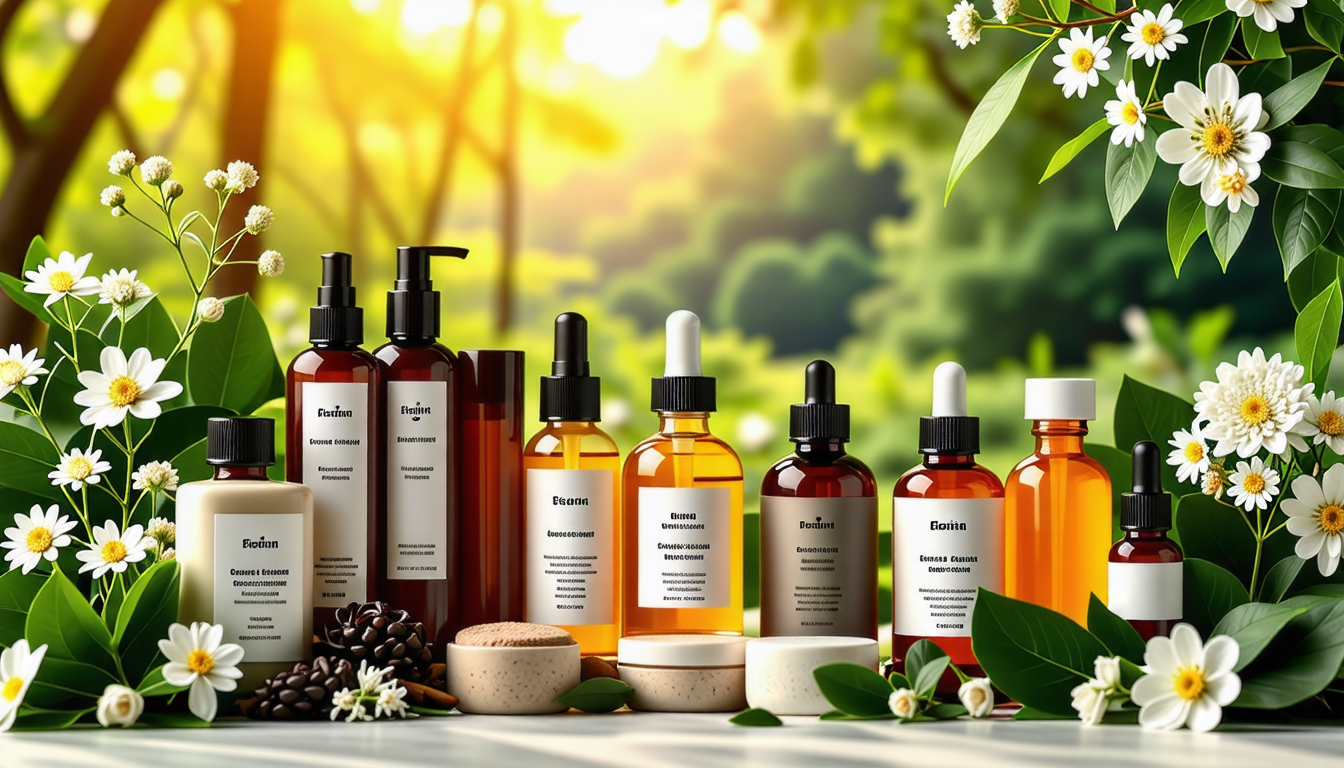|
IN BRIEF
|
As the sun graces us with its radiant beams, the importance of protecting our skin from its powerful rays cannot be overstated. But what if you could shield your skin while embracing nature? Enter natural sunscreen options—a harmonious blend of effective sun protection and eco-conscious ingredients. Forget chemical-laden products that may harm your health and the environment. With a surge of mineral-based sunscreens emerging on the market, we now have the opportunity to nourish and protect our skin safely. These formulations, rich in powerhouse ingredients like zinc oxide and titanium dioxide, create a physical barrier against harmful UV rays while being reef-safe and gentle on the skin. Join me on this journey to discover the best choices for safe sun protection that keeps both you and our planet smiling.
In the world of skincare, protecting our skin from the sun is a fundamental step. As more people become aware of the potential dangers of chemical sunscreens, the interest in natural sunscreen options has surged. These products offer reliable protection while being kinder to both our skin and the environment.
Brand C
Brand C specializes in water-resistant formulations, perfect for beach days and outdoor activities. Their SPF 30 sunscreen contains organic ingredients and is enriched with natural oils for extra skin nourishment.
In a world increasingly leaning towards natural and organic solutions, a myriad of options awaits in the realm of sunscreens. By considering the various types available, recognizing your skin type, and applying products effectively, you can achieve safe and enjoyable sun protection.
For more insights on nurturing your skin as you embrace the sunlight, check out these natural anti-aging tips that incorporate sun care into your daily routine.
What Constitutes a Natural Sunscreen?
Natural sunscreens differ from traditional sunscreens in that they utilize physical blockers rather than chemical filters. These physical blockers sit on the skin’s surface, forming a barrier that reflects and scatters the sun’s rays. As a result, they often come without synthetic additives and harsh chemicals, minimizing irritation for sensitive skin.
Key Ingredients to Look For
When selecting a natural sunscreen, it’s vital to check the ingredient list. Here are a few key components that signify a quality product:
- Zinc Oxide: A natural mineral that provides broad-spectrum protection against UVA and UVB rays.
- Titanium Dioxide: Similar to zinc oxide in its ability to shield the skin, titanium dioxide is effective in blocking UV radiation.
- Aloe Vera: Known for its moisturizing properties, aloe vera also offers protection against sun damage and helps soothe irritated skin.
- Green Tea Extract: Rich in antioxidants, it helps combat free radicals produced by UV exposure.
- Shea Butter: A fantastic natural moisturizer that also assists in nourishing the skin while providing a degree of sun protection.
With the increasing awareness about skin health, natural sunscreens have gained popularity as an effective solution for safe sun protection. Unlike traditional options that often contain harmful chemicals, natural sunscreens typically consist of mineral-based ingredients like zinc oxide and titanium dioxide. These ingredients work by physically blocking UV rays, reducing the risk of skin damage.
Recent trends indicate that consumers are prioritizing reef-safe products, particularly as coral reefs face significant threats from harmful chemicals found in conventional sunscreens. In fact, over 3,500 beaches worldwide are now advocating for reef-friendly options. When choosing a sunscreen, look for products that provide at least SPF 30 protection and are labeled as broad-spectrum, which ensures protection against both UVA and UVB rays.
In 2024, several new and exciting natural sunscreen brands have emerged, promising higher SPF and organic certifications. For instance, some brands have launched formulas with SPF 50, enhancing protection while maintaining a commitment to clean ingredients. Moreover, ingredients such as aloe vera and green tea are being incorporated for their soothing and anti-inflammatory properties.
As summer approaches, embracing the sun doesn’t have to compromise the health of your skin or the environment. Choosing natural sunscreens offers a powerful shield against harmful UV rays while maintaining a commitment to safe and eco-friendly practices. These products, enriched with mineral ingredients like zinc oxide and titanium dioxide, ensure effective protection without the harmful chemicals found in conventional options. Whether you opt for a lightweight lotion or a creamy balm, there’s a natural sunscreen fit for every skin type. Prioritizing reef-safe formulations not only benefits your skin but also preserves our precious marine life. Dive into the world of clean beauty and discover the joy of sun protection that feels good on your skin and good for our planet.
FAQ
What are the benefits of using natural sunscreens?
R: Natural sunscreens provide effective protection against harmful UV rays while being free from harsh chemicals. They are typically made with minerals such as zinc oxide or titanium dioxide, which offer broad spectrum coverage and are less likely to irritate sensitive skin.
Are natural sunscreens safe for the environment?
R: Yes! Many natural sunscreens are reef-safe, meaning they do not contain ingredients that can harm coral reefs and marine ecosystems. This makes them an eco-friendly choice for sun protection.
How do I choose the right natural sunscreen for my skin type?
R: When selecting a natural sunscreen, consider your skin type and any sensitivities. Look for options labeled as non-comedogenic for acne-prone skin, or opt for those with hydrating ingredients like aloe vera if you have dry skin.
Can I use natural sunscreen on my children?
R: Absolutely! Many natural sunscreens are formulated to be gentle and safe for all ages. Always check the label for age recommendations and opt for those that are specifically designed for children’s sensitive skin.
How often should I apply natural sunscreen?
R: It’s recommended to apply natural sunscreen generously every two hours, or more often if you are swimming or sweating. Make sure to reapply after towel drying for maximum protection against UV rays.

